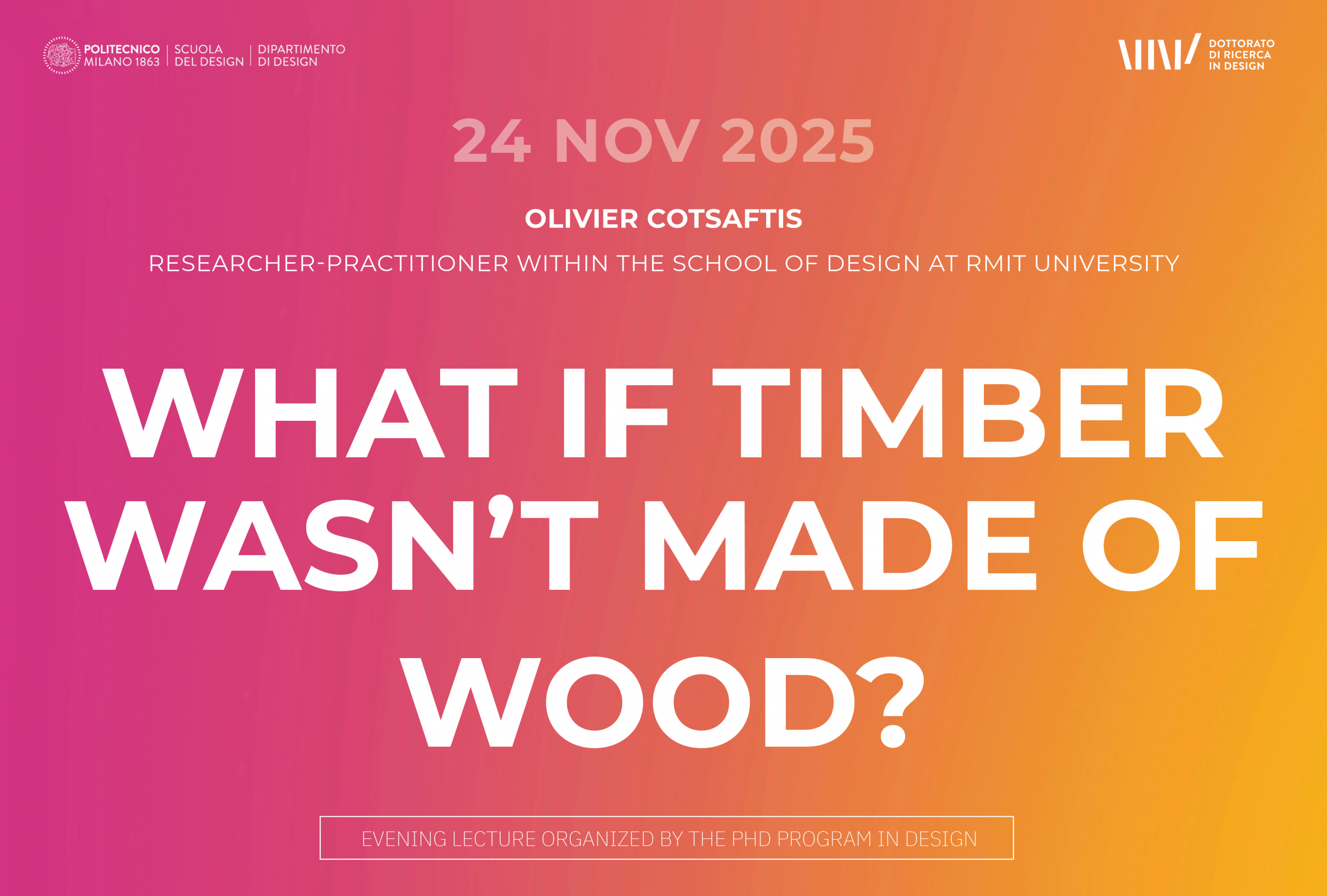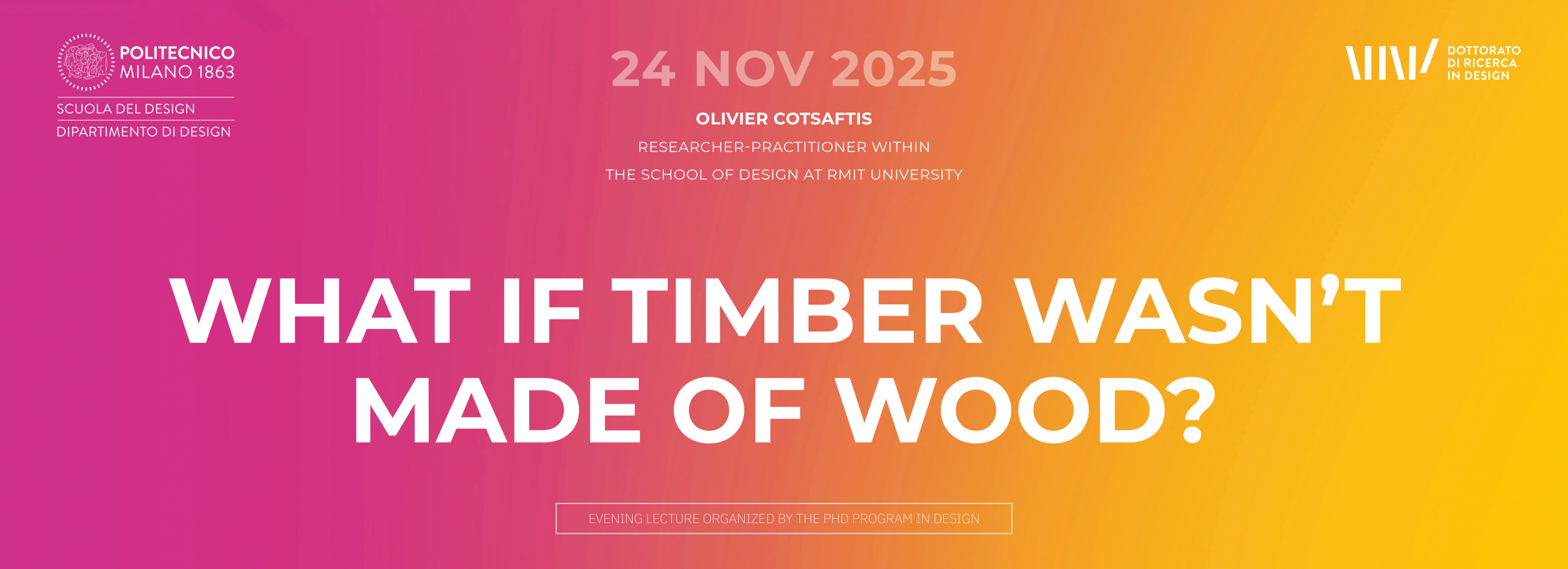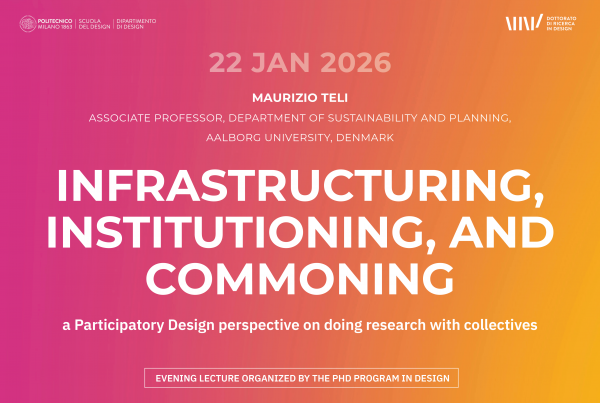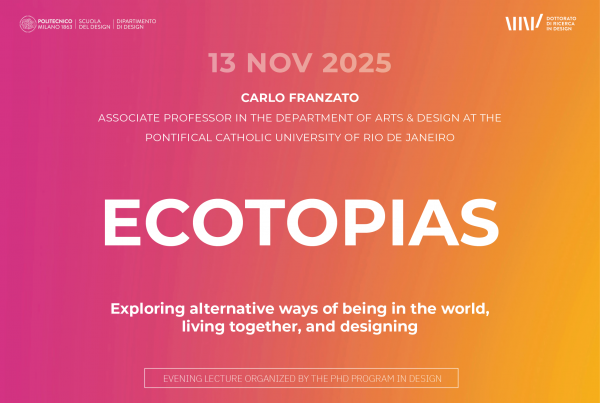

24 Nov 2025 @B3 Building
What if Timber Wasn’t Made of Wood?
Olivier Cotsaftis,
Researcher-Practitioner within the School of Design at RMIT University
6.00 PM (CET)
B3 Building, Campus Durando
Abstract
Speculative materialism reminds us that everything is contingent and that things do not have to be the way they are. That shirt you didn’t wear, the better society we haven’t built—both are simply outcomes we haven’t yet encountered. In an age when the interconnectedness of everything becomes increasingly visible, I propose that regenerative futures start with relational transitions. Building on recent material design research, I mapped five relational stances, each reflecting a distinct position in ecological design (outlined in an upcoming paper accepted in Design Issues). While legacy stances—designing about, with, and for nature—often reproduce distancing or extractive logics, even within well-intentioned practices, two emerging orientations open new possibilities: one grounded in mutualism and untapped potential; the other in situated engagement within existing constraints. These orientations suggest that regenerative practice begins by engaging differently with what surrounds us, working with existing conditions to surface new possibilities.
Bio of Olivier Cotsaftis
Ollie (Olivier) Cotsaftis is a researcher-practitioner within the School of Design at RMIT University. Working at the intersection of design and futures, his practice is grounded in living systems, critical ecologies, and material entanglements, contributing to regenerative transitions. Before joining RMIT, Ollie was a design lead at Fjord Design and Innovation and the founder of future ensemble studio. He is currently Co-Program Manager of the Master of Design Innovation and Technology, Design and Architecture Lead of the RMIT Nature Positive Network, and co-founder of neomatter, a nature repair and nature-based solutions startup. Website: https://briareos.studio/practice




